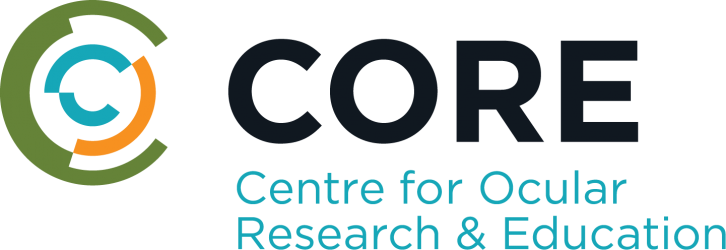WATERLOO, Ontario, August 26, 2024—In response to the rising visibility of beauty trends on Internet and social media, the Centre for Ocular Research & Education (CORE) has dedicated Issue 79 of Contact Lens Update to the effect of cosmetics and cosmetic treatments on the eye. The publication is available at no charge by visiting ContactLensUpdate.com.
“The popularity of social media platforms, like TikTok and Instagram, means that beauty products are promoted to a worldwide audience like never before. Positive product reviews or the recommendation of a beauty influencer spread like wildfire. However, most people often do not consider how their cosmetic choices could negatively impact their eyes before clicking ‘Add to Cart’,” said Jill Woods, Head of Clinical Research at CORE.
“We further elevate our role as eye care practitioners when educating our patients about how different cosmetics or procedures impact their eyes. Having different treatment options to manage problems and offering alternative options helps ensure optimal eye health.”
Claudine Courey, an optometrist in private practice and professional at an optometrist/ophthalmology speciality clinic in Quebec, Canada, authors the issue’s editorial. The overview discusses cosmetic products and procedures that practitioners encounter daily, delving into eyelash extensions and serums, tattooing the eyelid to mimic eyeliner, and the use of retinoids to improve facial skin appearance. She also discusses ocular complications and provides practical advice on the best way to manage and counsel patients.
Dr. Courey also lends her expertise to this issue’s clinical insight column. The downloadable practitioner handout provides helpful tips to start conversations that address the effect of cosmetics on ocular health. It also offers communications methods that elevate patient understanding and compliance.
The feature article is authored by Alison Ng, an independent optometric consultant and adjunct associate professor at the School of Optometry & Vision Science, University of Waterloo. She summarizes the findings of a study that investigated the prevalence of dry eye symptoms in a group of adult females from Saudi Arabia that use eye cosmetics. The overview explores the frequency and type of products that were applied, and the severity of the symptoms assessed with a validated dry eye questionnaire.
The conference highlight is contributed by Mahsa Raeisi Ardali, an optometrist in Ontario, Canada. The American Academy of Optometry-presented case report discusses someone who underwent keratopigmentation (eye tattooing) to permanently change their eye color. Her piece details the dry eye management routine that was proposed and outlines different applications and complications associated with the procedure.
Published six times per year, Contact Lens Update provides a global platform for unbiased clinical insights based in current research. Since 2011, each issue has provided dependable and up-to-date ocular health information for more than 60,000 leading eye care professionals.
In addition to a complete archive of back issues, ContactLensUpdate.com offers a resource library that provides no-cost professional tools, patient resources, images and video. It also houses complimentary technical training videos produced by International Association of Contact Lens Educators, plus an industry glossary. Industry professionals can access the latest issue directly from ContactLensUpdate.com or quickly sign up for email receipt of future issues.
The publication receives support from the educational arms of CooperVision and Johnson & Johnson Vision.
# # #
About the Centre for Ocular Research & Education (CORE)
The Centre for Ocular Research & Education (CORE) was established in 1988 at the University of Waterloo’s School of Optometry & Vision Science. Over the next three decades, the organization evolved from a three-person operation into a thriving hub of basic and applied research, collaborating with sponsors, agencies and academia on advanced biosciences, clinical research and education. Its uncompromising independence and results of the highest quality have been at the heart of many of the most prominent advances in eye health. Today, its approximately 50-person team serves a range of ophthalmic sectors, including medical devices, ocular pharmaceuticals, digital technology and others, with a focus on the anterior segment. For more information, please visit core.uwaterloo.ca.
MEDIA CONTACT
Lyndon Jones, Director, CORE
+1.519.888.4065 or lwjones@uwaterloo.ca





